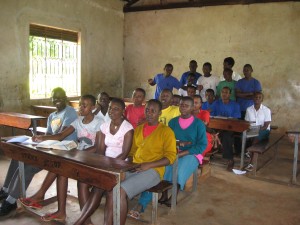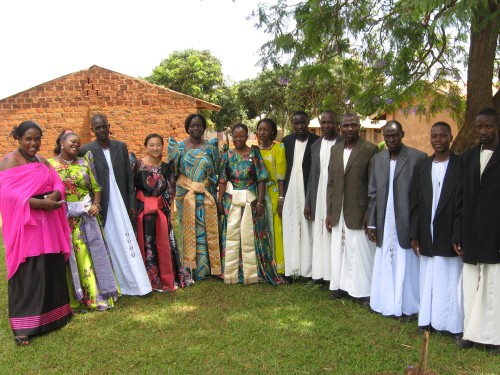“The tenure of a Peace Corps…volunteer runs in predictable cycles: first is a honeymoon of several months of excitement and novelty, then the realities of working in a third world environment set in, the frustrations and doubt mount, and the next several months range from melancholic to depressing. Nearing the first year mark, they learn to live with and negotiate the new culture, again feeling quite good about the experience.” – Peasants Come Last by J. Larry Brown
This is a quote from a book I have been reading, and I think the cycle of culture shock and cultural adjustment rings true for many PCVs – it certainly did for me. Looking back at my time in Uganda, I can say that I certainly went through a period of low points around my 6-9 month time at site, but now as I reach my first year anniversary at site in mid-April, I can also see that things have improved greatly since then. I have learned a great deal about navigating within a complex culture, about accepting things I cannot change, and appreciating the relationships I have.
An important turning point came around February, when I had a huge change in mindset after a particularly bad week. I realized that I needed to stop worrying so much and learn to relax. I needed to take things one day at a time. I had to recognize that many challenges were beyond my control and learn to accept them. I needed to enjoy my time here and stop trying so hard to keep busy doing things that made me feel useful. I know it all sounds like really simple stuff, but coming to that realization was a huge burden lifted off my shoulders.
And just as I learned to relax and slow down my pace, things finally started picking up. Projects I had been trying to get off the ground from the beginning of my time here finally started to fall into place. These days, I am teaching computer to students, which has been quite the experience. I’ve also started a reading club with a couple of teachers. I received a book donation from the U.S. back in January. It’s been great to put all the books to use and to provide students with an opportunity to read for fun. Over the holiday, a few students participated in girls’ and boys’ empowerment camps organized by Peace Corps Volunteers. They came back inspired to start a club at school to share the things they’ve learned, so I have helped them to start a life skills club at school. I am also helping with the English Club by organizing movie nights. By showing movies in English, we’ve been able to raise money for the club, share about American culture, hopefully help improve students’ English listening skills, and of course provide entertainment.
Beyond my adjustment to life here, there are also many other changes that have occurred which will mark my one year at site. Many of these experiences make me appreciate the fact that I can stay here for an extended period of time. Otherwise, I would not have been around long enough to watch these changes unfold.
One especially encouraging experience has been watching the nearby children slowly getting used to me. It has been great to see each of them open up to me one by one. When I first came to site, many of them would run away from me and burst into tears at the sight of me. One girl in particular, Rebecca, was afraid of me for the longest time. Even by the end of last year, after 8 months of knowing me, she would still cry and scream and hide behind her older siblings whenever I came near her. Finally, over the holidays, I made a breakthrough with her. I don’t even remember what happened, but she stopped being afraid of me. Now whenever she sees me, a big smile blossoms across her face. After finally being able to see what a happy Rebecca looks like, I now know that she is one of the sweetest, most adorable kids around.













